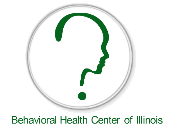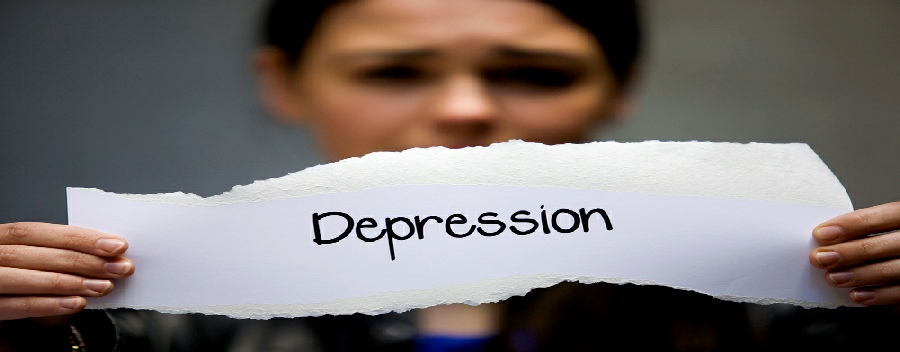




Depression
What is depression?
Most people feel sad or depressed at times. It’s a normal reaction to loss or life's struggles.
But when intense sadness -- including feeling helpless, hopeless, and worthless -- lasts for many days to weeks and keeps you from living your life, it may be something more than sadness. You could have clinical depression -- a treatable medical condition.
How Do I Know If I Have Depression?
According to the DSM-5, a manual doctors use to diagnose mental disorders, you have depression when you have five or more of these symptoms for at least 2 weeks:
- A depressed mood during most of the day, especially in the morning
- You feel tired or have a lack of energy almost every day.
- You feel worthless or guilty almost every day.
- You have a hard time focusing, remembering details, and making decisions.
- You can’t sleep or you sleep too much almost every day.
- You have almost no interest or pleasure in many activities nearly every day.
- You think often about death or suicide (not just a fear of death).
- You feel restless or slowed down.
- You’ve lost or gained weight.
While these symptoms are common, not everyone with depression will have the same ones. How severe they are, how often they happen, and how long they last can vary.
Your symptoms may also happen in patterns. For example, depression may come with a change in seasons (a condition formerly called seasonal affective disorder).
Can Depression Have Physical Symptoms?
It's not uncommon for people with depression to have physical signs of the condition. They may include joint pain, back pain, digestive problems, sleep trouble, and appetite changes. You might have slowed speech and movements, too. The reason is that brain chemicals linked to depression, specifically serotonin and norepinephrine, play a role in both mood and pain.
Is Childhood Depression Common?
Childhood depression is different from the normal "blues" and everyday emotions most kids feel. If your child is sad, it doesn’t necessarily mean he has depression. It's when the sadness stays with him day after day that depression may be an issue. Or, if your child has disruptive behavior that interferes with normal social activities, interests, schoolwork, or family life, that may also be signs of a problem.
Depression in Teens
A lot of teens feel unhappy or moody. However, when the sadness lasts for more than 2 weeks and a teen has other symptoms of depression, then he may have a problem. Talk to your doctor and find out if your teen may be depressed. There is effective treatment that can help teens move beyond depression as they grow older.
Are There Different Types of Depression?
There are a few types of depressive disorders that doctors can diagnose, including:
- Unipolar major depression
- Persistent depressive disorder, also called dysthymia, when depression lasts for at least 2 years
- Disruptive mood dysregulation disorder, when children and teens get extremely irritable, angry, and often have intense outbursts that are more severe than a child’s typical reaction
- Premenstrual dysphoric disorder, when a woman has severe mood problems before her period, more intense than typical premenstrual syndrome (PMS)
- Substance-induced mood disorder (SIMD), when symptoms happen while you’re taking a drug or after you stop
- Depressive disorder due to another medical condition
- Other depressive disorders, such as minor depression
Your depression may have other specific features, such as:
- Anxious distress. You worry a lot about things that might happen or about losing control.
- Mixed features. You have both depression and mania -- periods of high energy, talking too much, and high self-esteem.
- Atypical features. You can feel good after happy events, but you also feel hungrier, need to sleep a lot, and are sensitive to rejection.
- Psychotic features. You believe things that aren’t true, or see and hear things that aren’t there.
- Catatonia. You can’t move your body normally. You might be still and unresponsive or have uncontrollable movements.
- Peripartum depression. Your symptoms begin during pregnancy or after giving birth.
- Seasonal pattern. Your symptoms get worse with changes in the seasons, especially the colder, darker months.
What Illnesses Happen With Depression?
It’s common for people to have other medical or mental health problems along with depression, such as anxiety, obsessive compulsive disorder, panic disorder, phobias, and eating disorders. If you or a loved one has symptoms of depression or another mental illness, talk to your doctor. Treatments can help.
What Are the Warning Signs of Suicide?
Warning signs include:
- Thoughts or talk of death or suicide
- Thoughts or talk of self-harm or harm to others
- Aggressive behavior or impulsiveness
Watch for these signs if your child or teen starts taking antidepressants. In some cases, people under 25 may have more suicidal thoughts in the first weeks of taking these medicines or when they take a different dose.
WebMD Medical Reference Reviewed by Neha Pathak, MD on September 21, 2017

| Couples Therapy |
| Depression |
| Anxiety |
| Grief and Loss |
| PTSD |